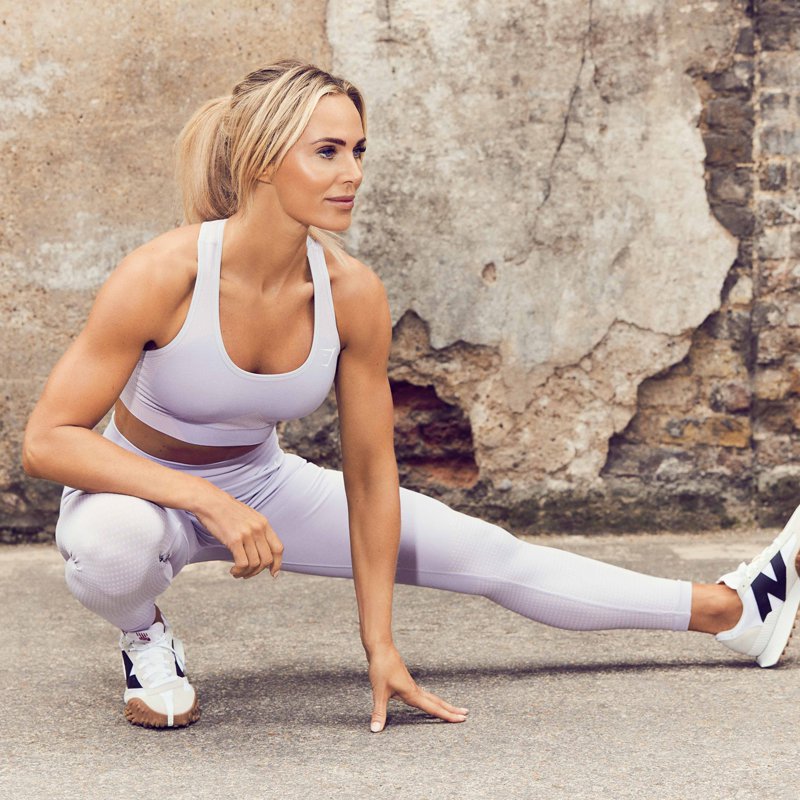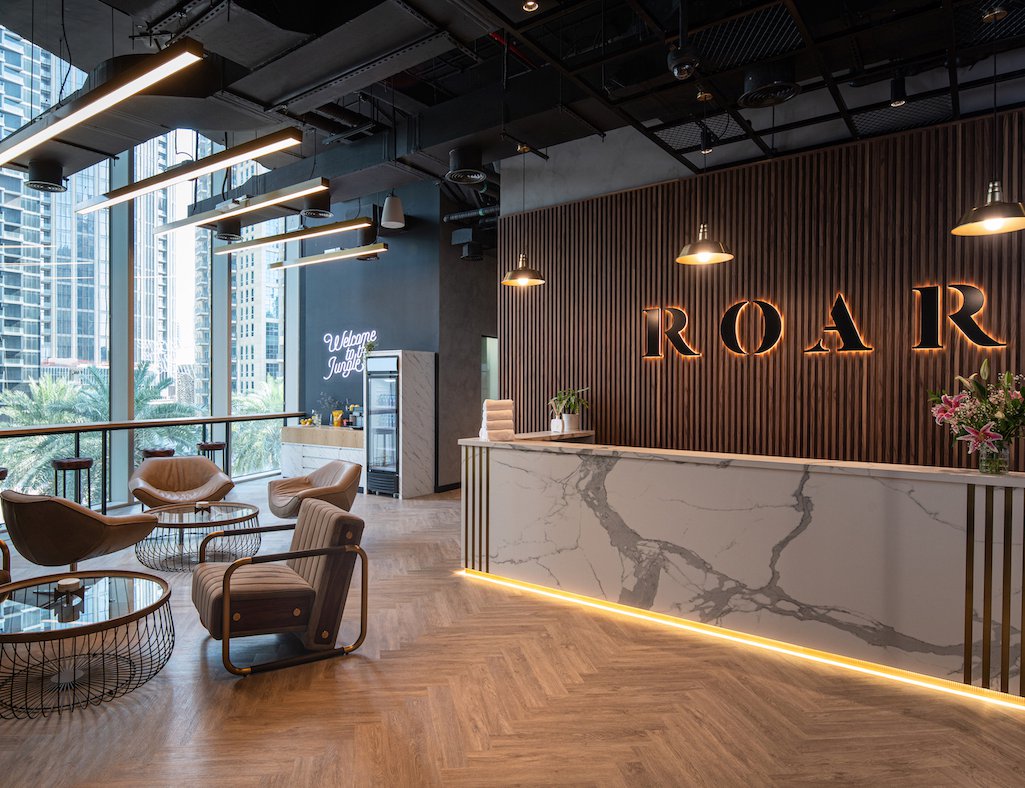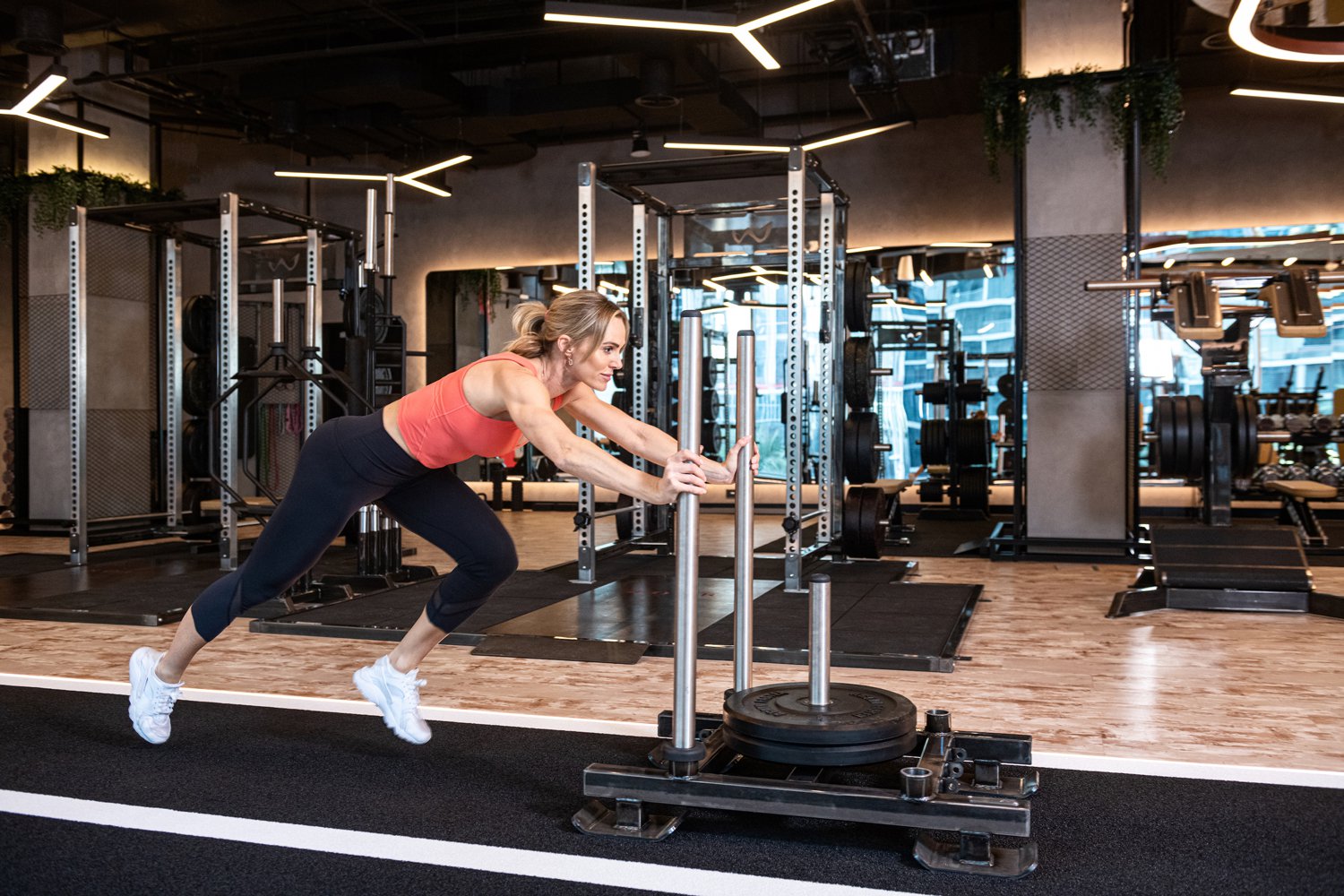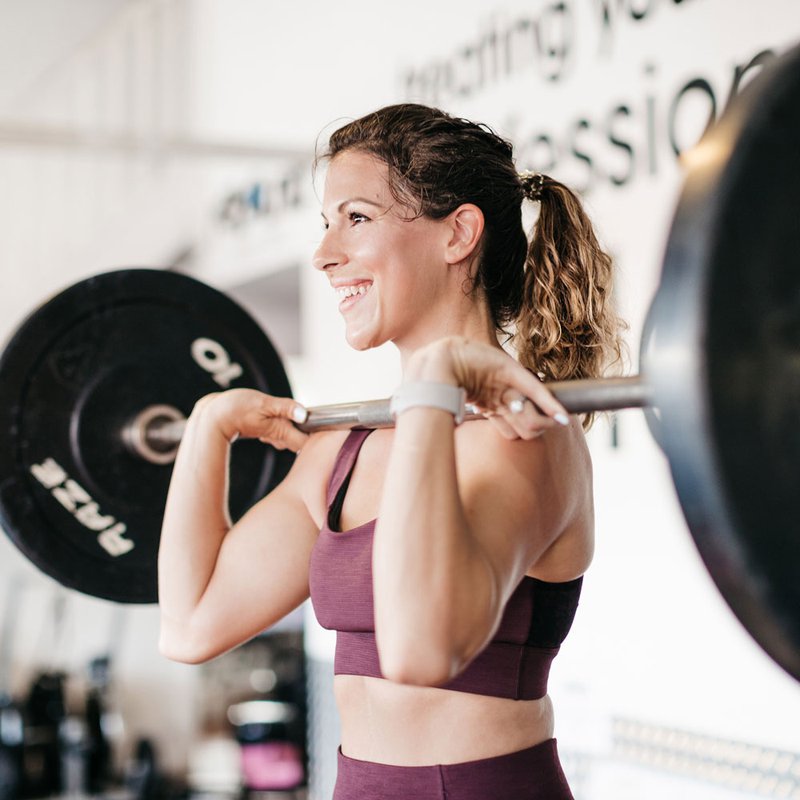Firstly, how do the body’s physical needs change as we age?
It changes in so many ways as we get older and it’s important to respect these changes if we want to continue to maximise the benefits of what exercise can do for us. For example, there is a lot of evidence reported from Olympic sports that athletes’ ability to recover from intense training after the age of 30 significantly diminishes. Without adequate recovery, physiological adaptation is limited, and progress in performance won’t happen.
How important is it to stay strong as we grow older?
Strength is key to capability. The stronger you are, the easier everyday life is and the less effort everything takes, which means you have more energy to do more activity. Muscle mass has a direct link to mortality as it affects your agility, balance, metabolism and hormones. I see a direct correlation between physical capability and mental confidence, which, as we age, is important for the everyday and life decisions we make.


What’s your age-related fitness advice?
I don’t think there’s a one-size-fits-all approach, as people age very differently, but we should all prioritise health and fitness at every age, and it’s never too late. I would suggest:
Twenties & thirties: The younger you are, the harder it is to overtrain and the easier it is to gain muscle, so look at your 20s and 30s as the golden age to build lean tissue that can last you a lifetime. In an ideal world, three to five training sessions per week will maximise potential. You will need to periodise and cycle your workouts to keep progressing and avoid plateauing but train with intensity lifting as heavy as you can for the given rep range. With your highest natural metabolism, focus on eating well and plenty to fuel and recover from your training, giving the body its best chance of getting stronger.
Forties: Hormones can make a shift in both men and women, so it’s an important time to get some basic bloodwork done to get a baseline of information. Recovery starts to slow down, and depending on your training age, your ability to gain strength and muscle starts to diminish, so extra focus must be placed on this. An extra rest day, a weekly massage, regular mobility sessions and extra time spent warming up and cooling down will help massively. Extra focus on vitamins and minerals in the form of varied whole foods and/or supplements would be beneficial but get these checked with blood work or consult with a nutritionist/dietician on what to take.
Fifties: This is when we can see a real increase in muscle loss, even more so in women due to menopause. I don’t want to demonise any exercise, but excessive cardio will lead to more muscle loss, so if you do exceed 45 minutes of daily cardio, be mindful that you are always adequately fuelled. Although intensity in training is still important, it’s advised when weight training to save one or two reps in the bank of each set to avoid injury. Not necessarily because you’re more likely to get injured, but if you do get injured, it can take a long time to heal. Train to preserve your body, not punish it. Protein consumption becomes vital for maintaining muscle mass, so prioritise protein when planning all meals.
Continuing on nutrition – what should we be eating or removing from our diets?
Nutrition is paramount. Health should be the number one priority for your nutrition plan. Then you should eat for performance, eat for recovery from exercise and then for any body composition goals if that is a concern. As we age, the ‘health’ element becomes more and more important to keep our bodies functioning optimally as cell regeneration slows down.
What else should we be aware of as we age?
The psychological benefits of fitness are important. It’s the greatest anti-depressant. It builds confidence in so many ways. It relieves stress, which is one of the biggest factors in overall health. It can give a sense of purpose, identity, achievement, and community and can be incredibly sociable, too.

